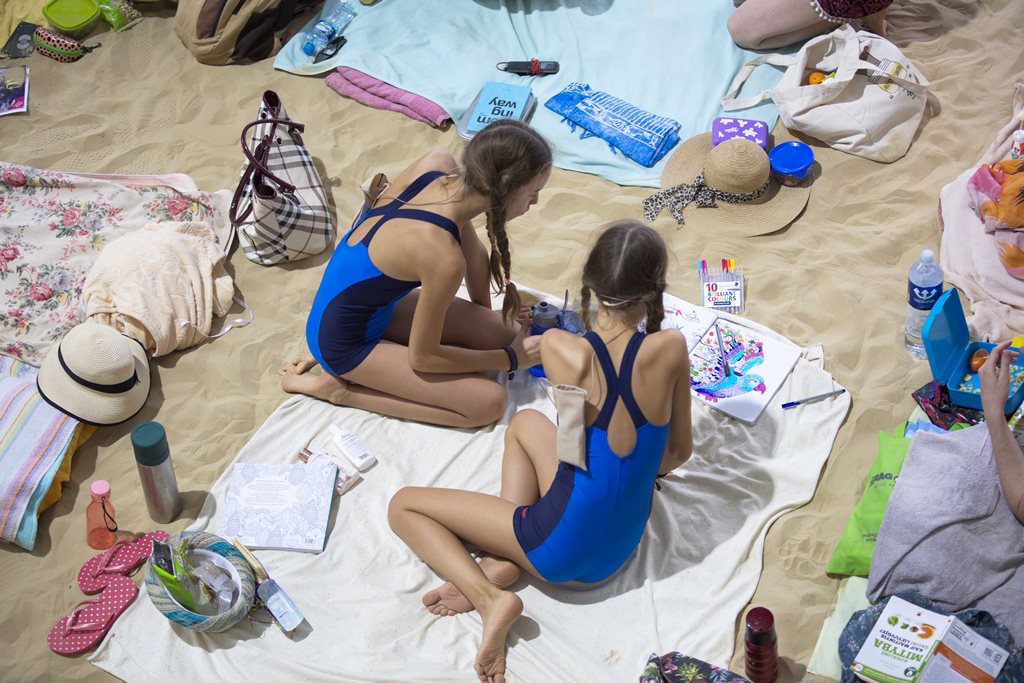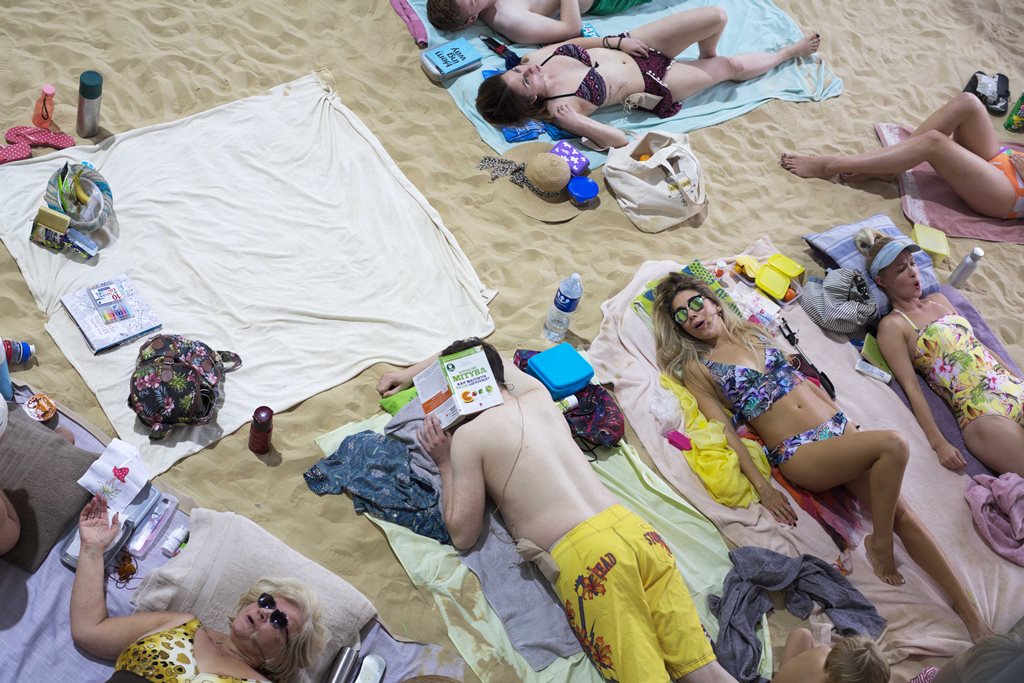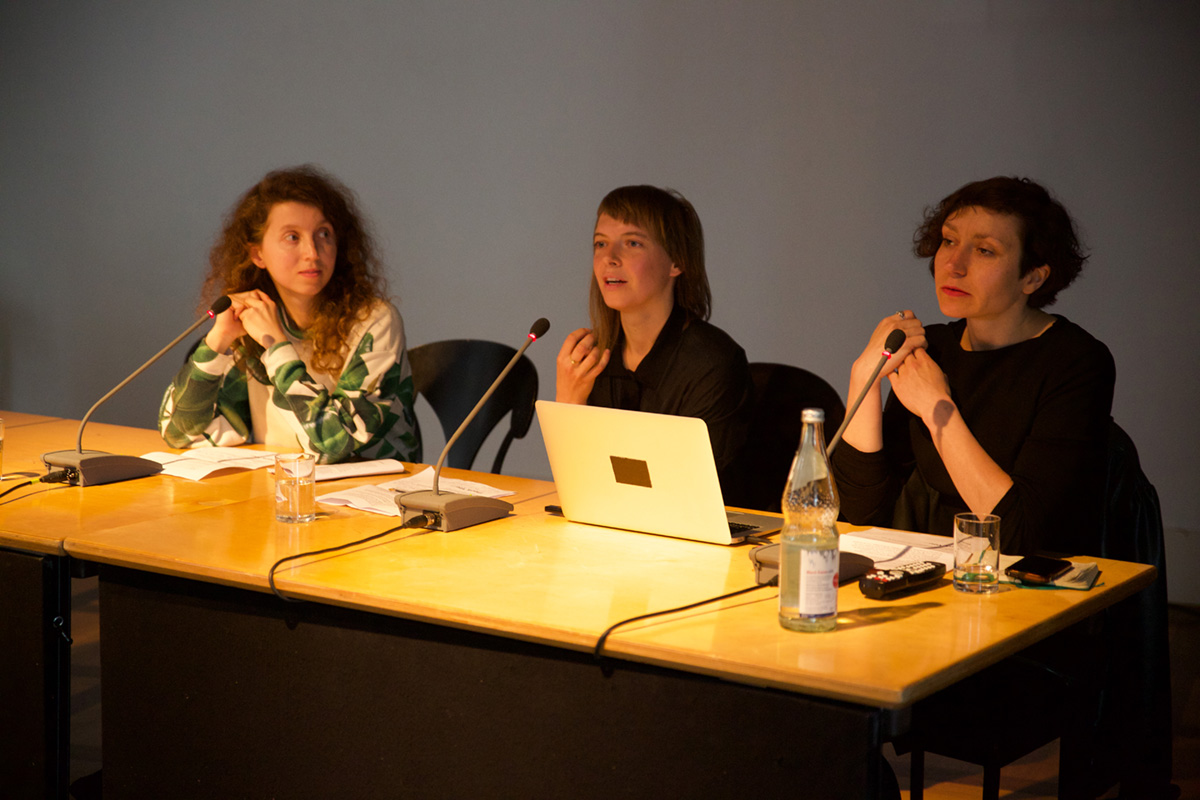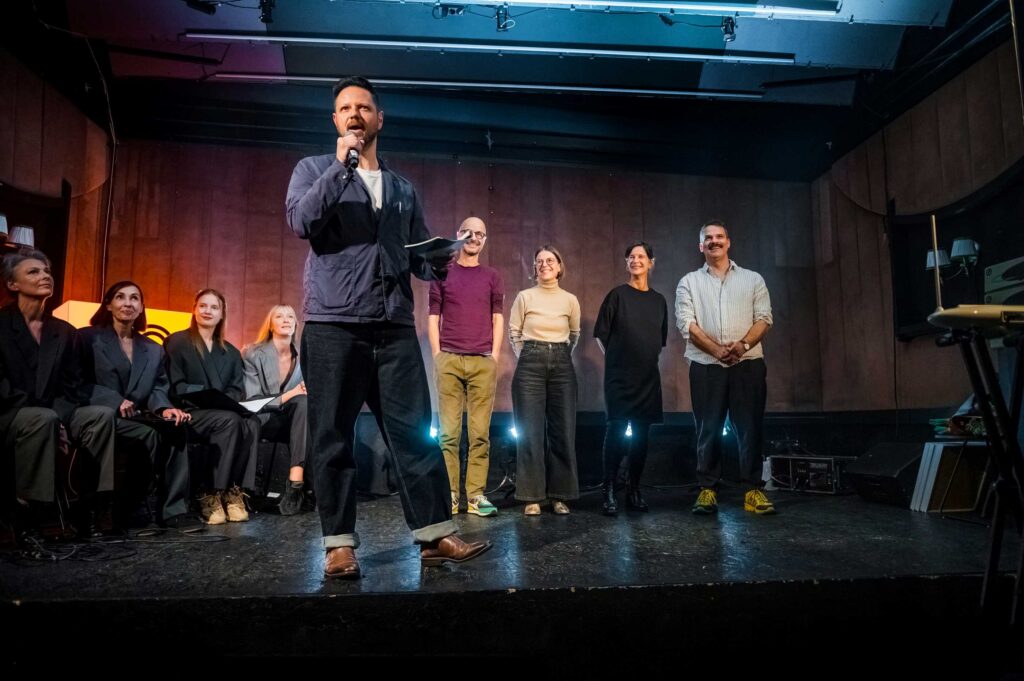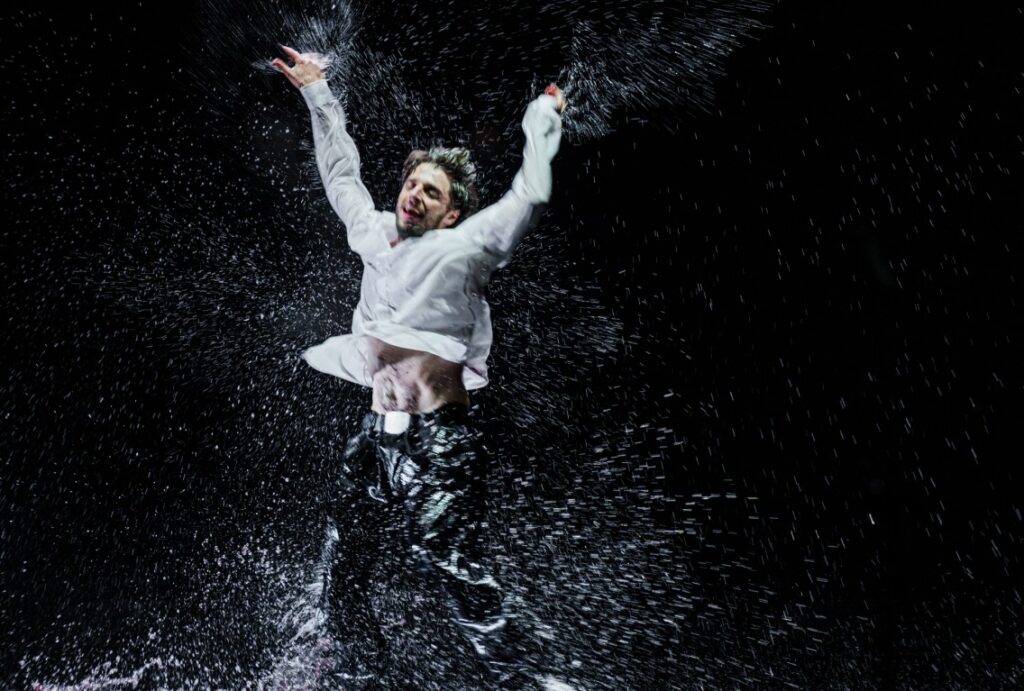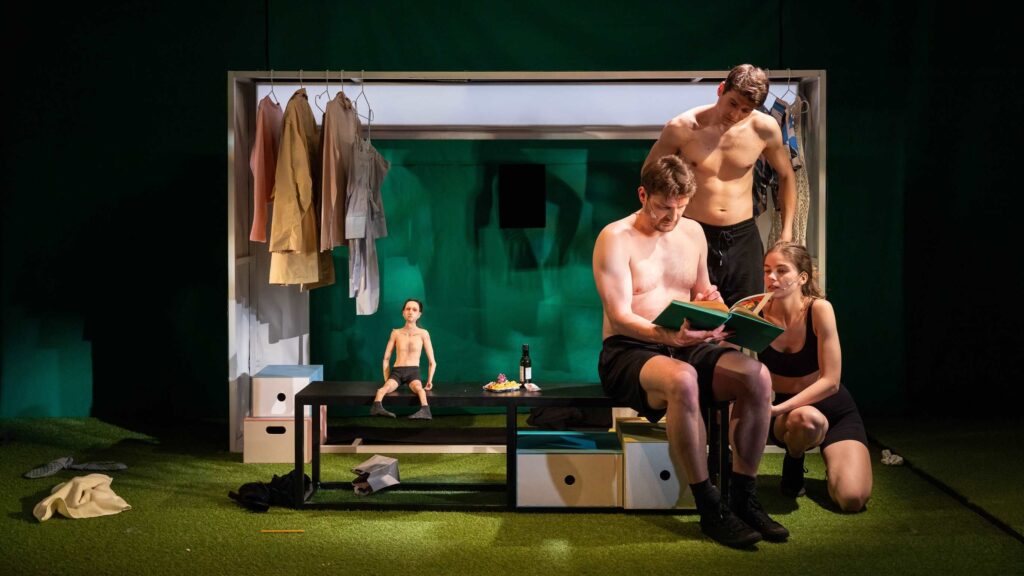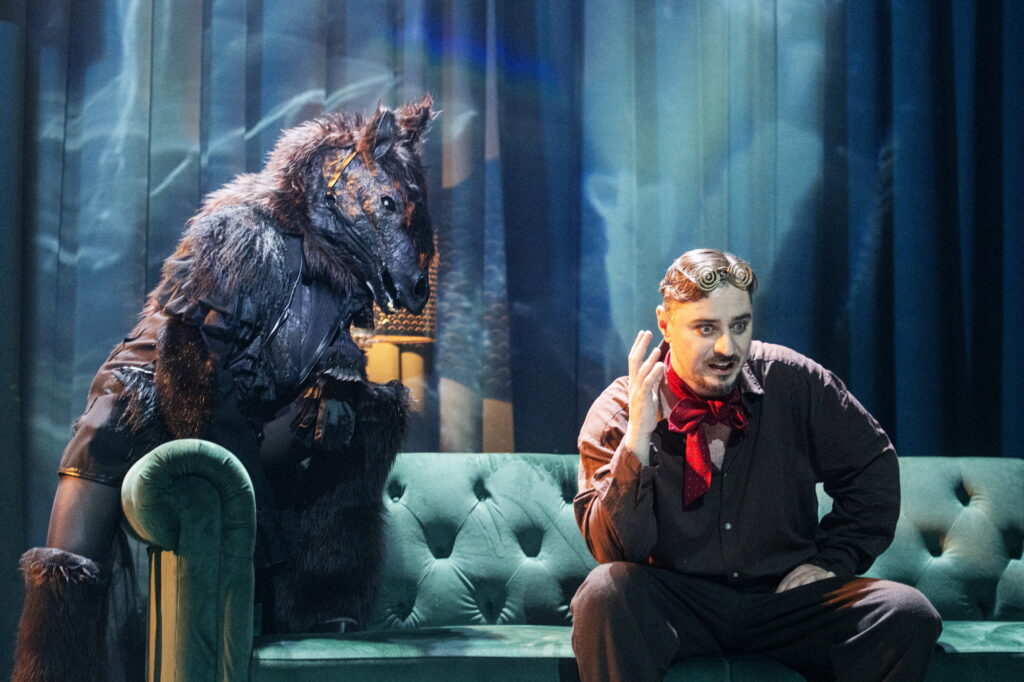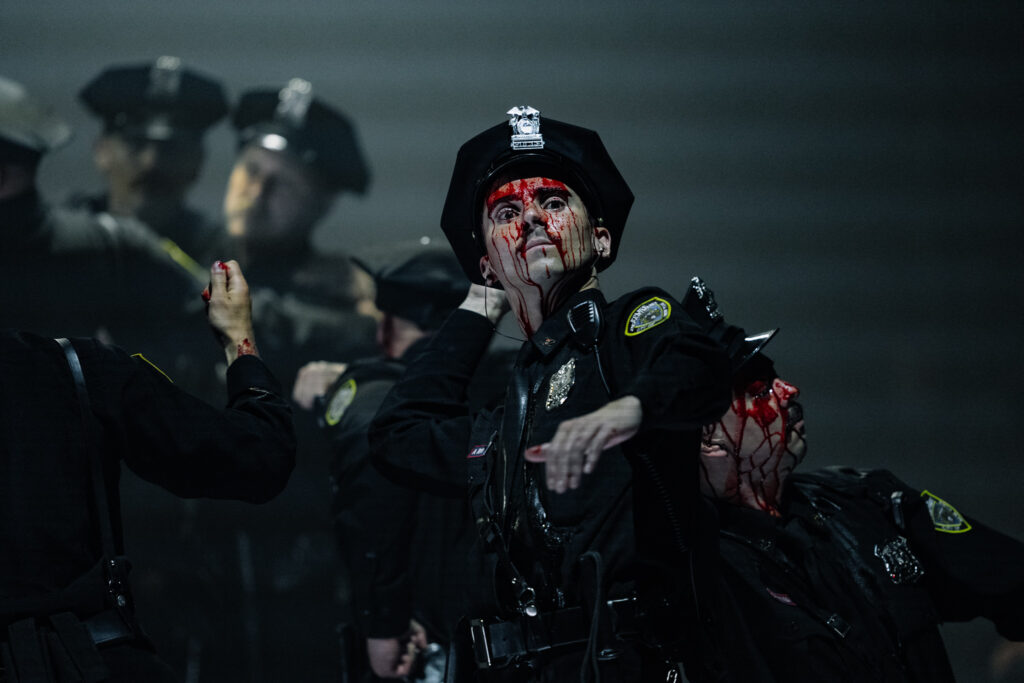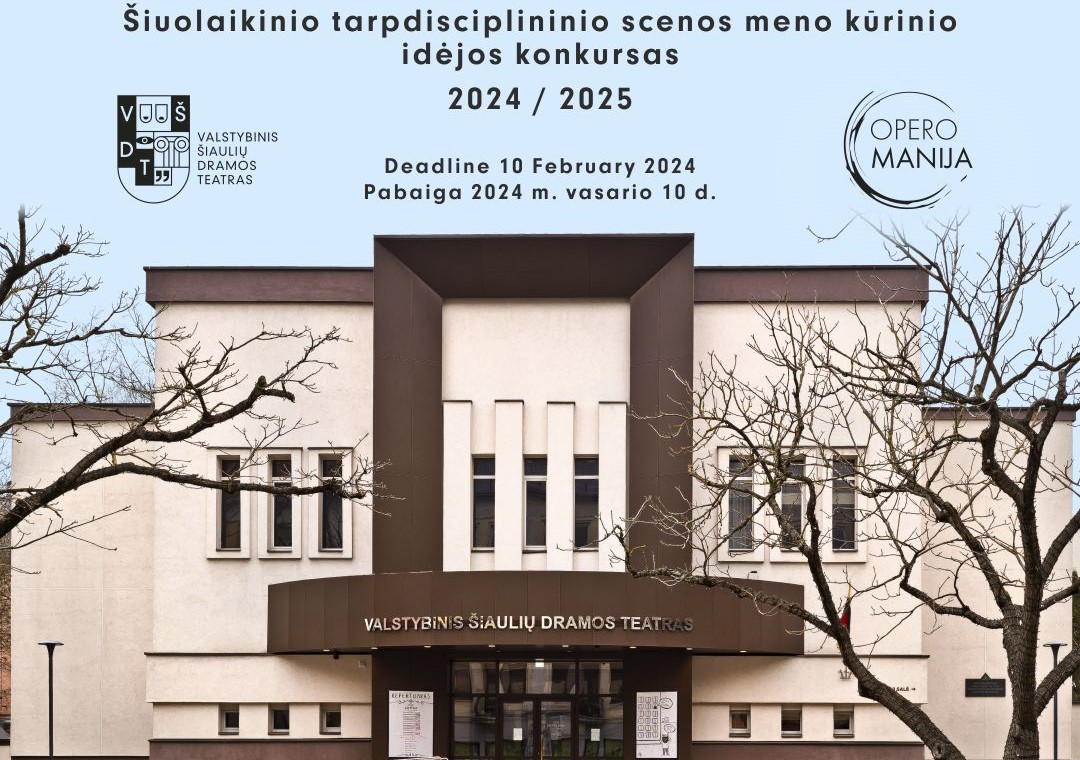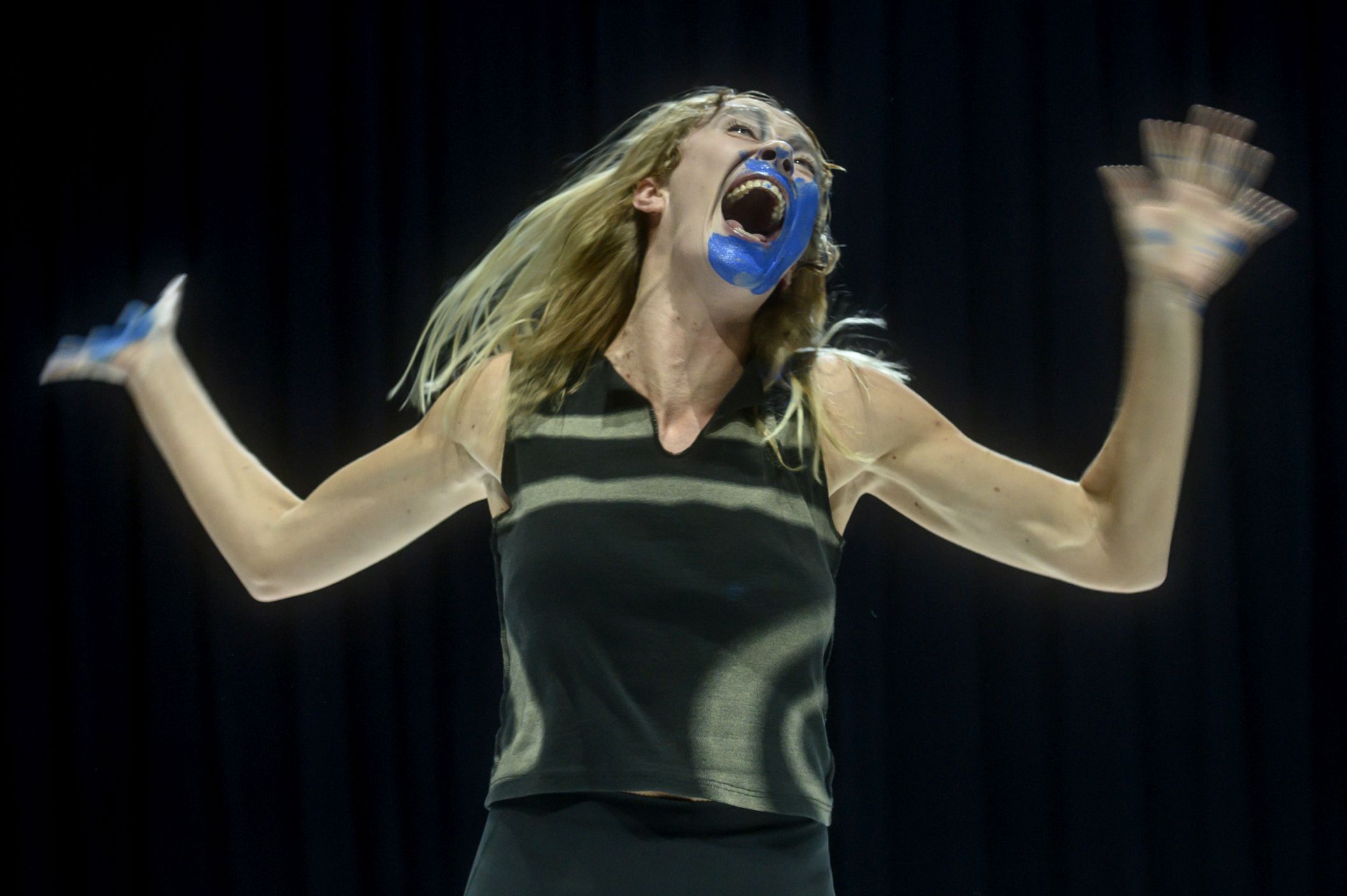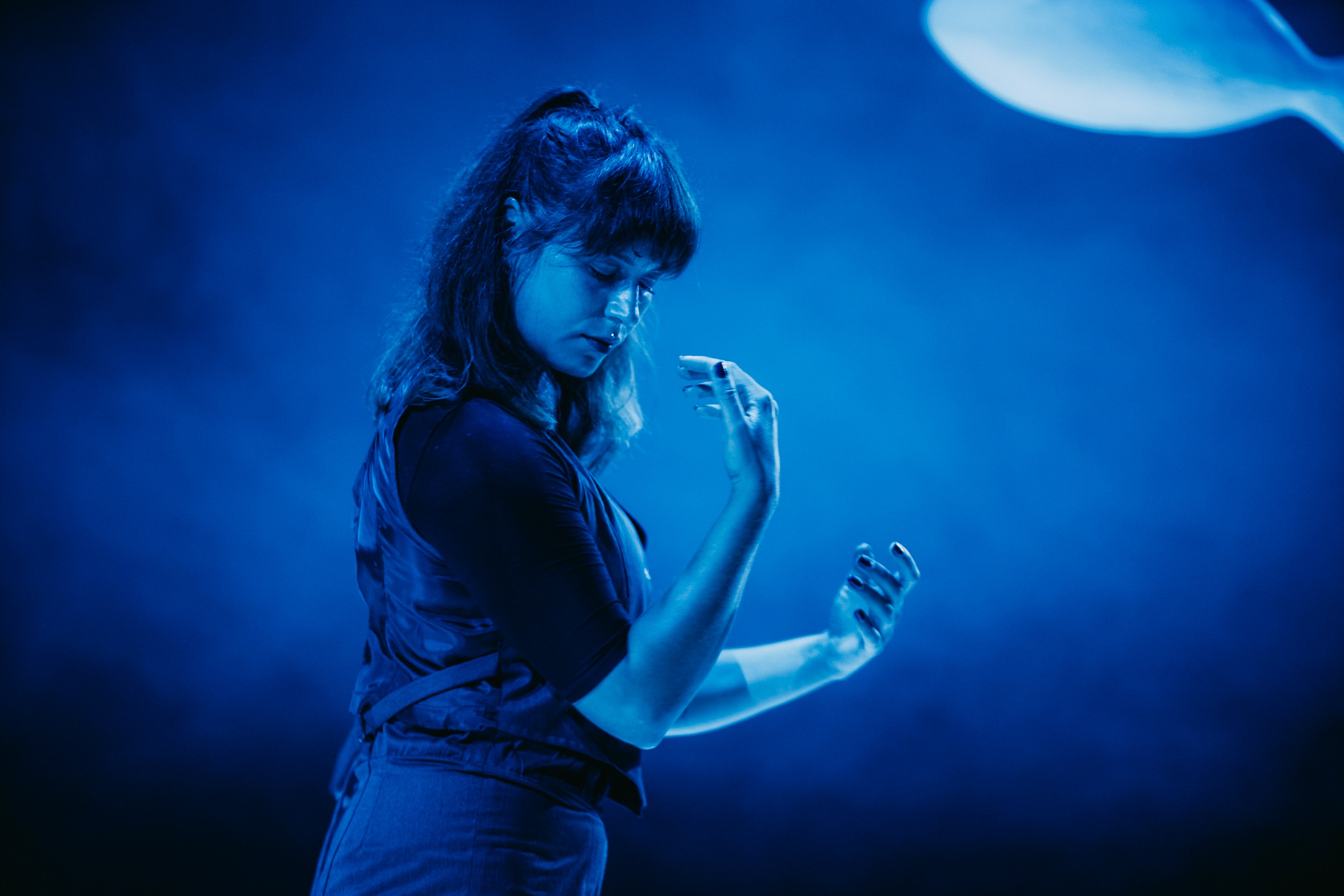In October of 2017, the premiere of the newest work - the contemporary opera The Sun and the Sea (Lith. Saulė ir jūra) - of director Rugilė Barzdžiukaitė, librettist Vaiva Grainytė and composer Lina Lapelytė took place in the National Gallery of Art (Vilnius). The artists of international acclaim staged the German version of The Sun and the Sea at the Staatsschauspiel Theatre in Dresden, in 2018, whereas the latest English version of the opera is going to be presented at the 58th Venice Biennale. New characters of The Sun and the Sea adapted for the international audience and local Venetian context as well as a new libretto and soundtrack are going to be presented at the Biennale.
The action of the opera takes place on the beach, where suntanned holidaymakers lying on their colourful towels create a carefree holiday picture. The vacationists of varying age embody a well familiar beach situation not only through their expressive bodies, but also through the stories that they sing. And yet this atmosphere that may seem realistic and joyful at first glance is hiding a much more complex topic of ecology. “This paradoxical mismatch of content and form enables the highlighting of ecological themes from unexpected perspectives,” director and set designer Rugilė Barzdžiukaitė claims.
The libretto of The Sun and the Sea was created with the focus on the topic of climate change; however, as librettist Vaiva Grainytė explains, she was interested in presenting scientific facts through personal stories and in revealing threatening situations through light and playful hints as well as political paradoxes. Whereas minimalist music by Lina Lapelytė immerses the heat exhausted bodies into the flow of peaceful, engaging melodies that, according to the composer, remind of a soundtrack of unfinished pop songs.
The creators looked for the performers for their opera in various folklore ensembles, church choirs, musical families and even in sports clubs and gatherings of elderly people. This is how they found the most suitable people who personify exceptional characters both through their vocal and physical abilities. The Sun and the Sea contains professional soloists and amateur singers.
Art critic Miglė Munderzbakaitė (kamane.lt) writes, “Spectators, who watch the entire action from above, from the stairs of the second or third floor, can actually feel themselves on the beach; can feel the light and even the warmth of the sun. Precisely designed scenery creates a special impression of reality, whereas the contrast among stage professionals, music performers and light-hearted children is particularly fascinating and gives real vitality and energy to the performance.”
Theatre critic Vaidas Jauniškis (Menų faktūra) says, “The contemporary opera The Sun and the Sea is quite the opposite of traditional theatre. /.../ We observe the entire beach from above and one of the most amazing things here is the designed 'reality' of space - the children playing and behaving surprisingly naturally 'on the stage'; animating the statics of the recreation of the adults. /.../ This distorts the traditional concept of 'everybody's importance and significance on the stage' and creates the feeling of insignificance that is badly needed here. Intentionally simplified and even primitively sounding electronic music sometimes plays with pop just like the sea plays with the shore (here we can hum hundreds of songs containing 'shore and sea') and that insignificant relaxation (of the characters and the audience) releases you from a more conscious responsibility to exist differently or even to attempt to think.”
In the joint creative work of the authors of The Sun and the Sea, special attention is paid to the link between documentary and fiction, reality and poetry as well as to the merger of theatre, music and the visual arts. The first work of the artists - the contemporary opera Have a Good Day! (Lith. Geros dienos!, 2013) - speaks about daily routine of shopping centre cashiers. This opera has been granted six international awards, has been presented in various global festivals of music, theatre and opera in the USA, China, Germany, Switzerland, the Netherlands, Portugal, Estonia, Latvia, Russia and Ukraine as well as in over ten international theatre festivals in France. The opera has been broadcast by BBC Radio 3. The project The Sun and the Sea was granted a residence fellowship at the Akademie Schloss Solitude in 2016-2017.
***
Rugilė Barzdžiukaitė (b. 1983) is a director working in the spheres of theatre and cinema. The analysis of the tension between objective and imaginary realities, and playful questioning of an anthropomorphic worldview are among the preferred creative strategies of the artist. Rugilė Barzdžiukaitė has completed her studies in theatre directing and film operating at LMTA in Vilnius, also film documentary studies at Goldsmiths, University of London.
Vaiva Grainytė (b.1984) is a writer, dramatist and poet involved in various interdisciplinary theatre projects. Her most recent works clearly reveal the features characteristic of the artist, i.e. biographic and collective memory, reflections on domestic matters and social themes going hand in hand with undertones of poetry, absurd and surrealism.
Lina Lapelytė (b.1984) is an artist residing and living both in Vilnius and London. Her performance-based practice is inseparable from music and in constant flirt with the pop culture, gender stereotypes and nostalgic conditions. Her works stand out for their expression rich in pastiche and grotesque, contextual and conceptual musicality as well as theatrical suggestion.

_GabrieleSegzde.jpg)
